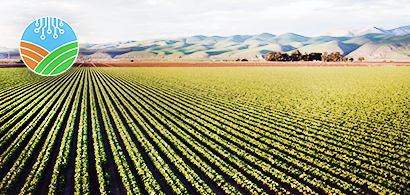 Terratech
Terratech
12 Courses

TS2.1 Precision Crop Production and Protection Systems
Within the framework of the course, state-of-the-art knowledge is provided in terms of the use of plant varieties, nutrient management and plant protection, which are key elements of precision field crop production.

TS2.2 In-Silico Models for Integrated Environment and Human Health Risk Assessment
According to Integrated Risk Assessment framework, adult participants in this course will acquire the basic skills of understanding and using MERLIN-Expo Tool, a platform containing multimedia environmental and food models and a general PBPK model, for an integrated environmental and human risk assessment to chemicals.

TS2.3 Precision Nutrient & Irrigation Management
Students will have the chance to learn new management techniques associated with precision plant farming. Students get acquainted with the possibilities of data collection, data integration and spatial decision support technologies, information and communication systems required for precision crop production, management knowledge of the operation and organization of precision crop production mechanization and efficient operation of farming.

TS2.4 Agricultural Drone Systems
The principles of data acquisition together with techniques for autonomously navigating a drone are taught in this course with a special focus on agricultural applications. Electric loads like motors, sensors, controllers and lights are described on a current consumption basis and in direct comparison with electric sources on board (batteries) and their characteristics in order to create a complete image of the drone electric system.

TS2.5 Data Processing and Blockchain
Interpretation of the data acquired through sensoring system will automate the agricultural environment evaluation. In this topic, possible ways of achieving such automation will be analysed taking into account the particularities of the signal parameters coming from sensors. Insight to important data storage, manipulation and processing techniques and technologies of data fusion for extracting conclusions through a multi-sensoring system will be performed. In addition, the course will also focus on data security, blockchain technology and implementation and its features (reliability, transparency, security). The fundamentals of this technology and the potential of its application in the Future Agricultural Engineering are shown including the traceability of products, immutable register of actions/samples/procedures, use of smart contracts for automation of operations interactions, management of legal/security obligations (personnel, authorizations, public agencies control etc.)

TS2.6 Renewable Energy in Agriculture
This course is focused on providing basic knowledge and expertise as regards the application of renewable energy sources (RES) in an agro-environment. Students will be introduced to renewable energy sources and their role, significance and potential to be followed by the elaboration on applications in agriculture as regards the production of electrical energy, heating and cooling. The introduction of basic technologies will also be facilitated by the elaboration on tools such as production forecasting and computer-based management, monitoring and control systems as well as technoeconomic evaluation.

TS2.7 Modern Technologies to Mitigate the Impact of Agricultural Activities on Ecosystem Services and Training
Introduction into the main aspects of the EU legislative framework on pesticides. Specific legislative elements related to Directive 128/2009 on the sustainable use of pesticides. The link between risk assessment and risk management, why this link and dialogue is important in the realistic condition of pesticide use phase. Knowledge gaps and challenges that might be considered to prevent point-source pollution and diffuse source pollution at farm level, to mitigate the risk of environment contamination from farming operations and to ensure the safety of workers and operators.

TS2.8 Augmented/Virtual Reality
This course will provide and overall understanding of the benefits and qualities that the application of Virtual and Augmented reality solutions can bring to the field of Agriculture. The Mixed Reality (MR), which is the outcome of the use of VR/AR solutions combined with information from input devices (sensors), can increase the efficiency of agriculture professionals and ensure greater effectiveness of decision making.

TS2.9 Innovation & Entrepreneurship Management
This course will give an overview on the different topics of Innovation & Entrepreneurship Management with a clear focus to the field of Agriculture by using examples within the lectures.

TS2.10 Business Administration
This course will give an overview on the different topics of business administration with a clear focus to the field of Agriculture by using examples within the lectures.

TS2.11H Language Lessons
According to the Common Framework of Reference for Languages, adult participants in this course will acquire the basic skills of Hungarian (understanding and using oral and written discourse) as well as its socio-linguistic features so as to be able to respond in simple communication situations. In particular, they will focus on issues related to their personal and everyday life (identity, accommodation, environment - weather, leisure time – entertainment, social relationships, health and fitness, home and outdoor activities, shopping, nutrition, education, transportation and travel). In order to promote interculturalism, during the course will present the main parts of the history of Hungarian culture and will be presented and visits to museums and cultural sights of the city of Debrecen will be carried out.

TS2.12 Developing Tool Demonstrator
The course will present to the DEB participating students the modern world of drones. Besides a limited theoretical part, the course will be purely experimental. The drone measurement system, developed by DEB, will be used by the students as a platform to install the sensor cluster apparatus, developed during the Intermediate Project. The assembly will be guided by the instructor. The students will write the necessary code to connect the drone guidance system with the sensor cluster, develop a user interface and send the data to the e-Learning Platform. The students will use the drone to perform a set of crop inspections. A selected range of subtasks will be performed by students working individually or in groups.